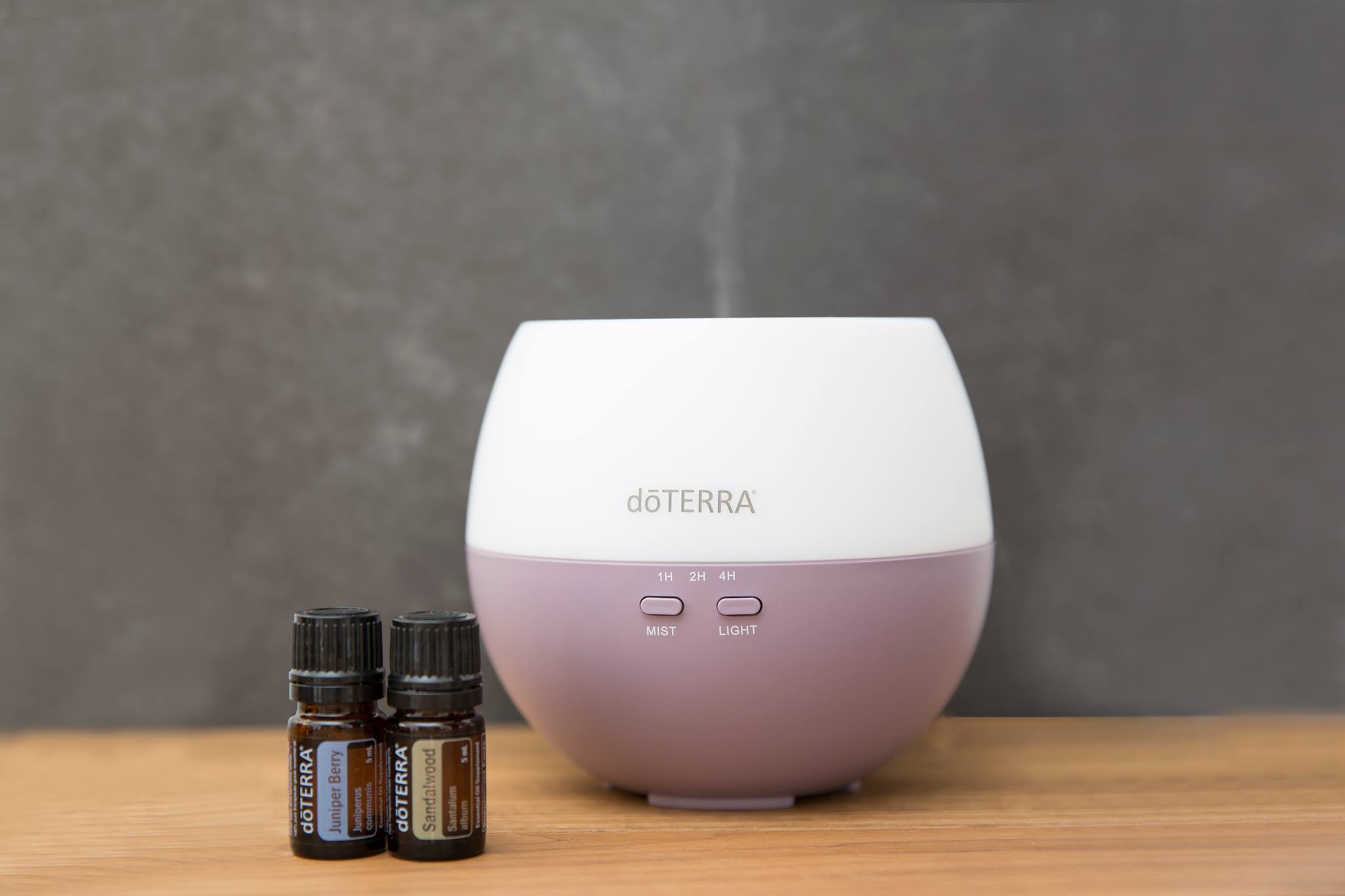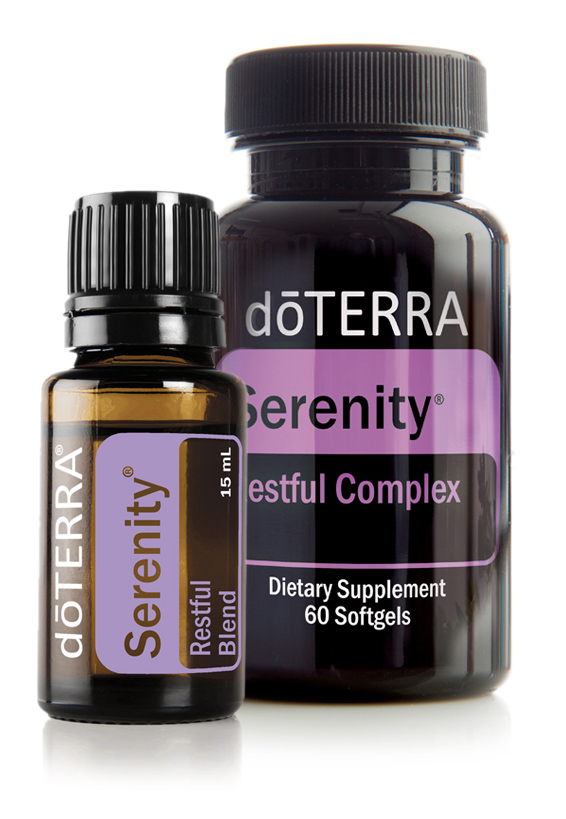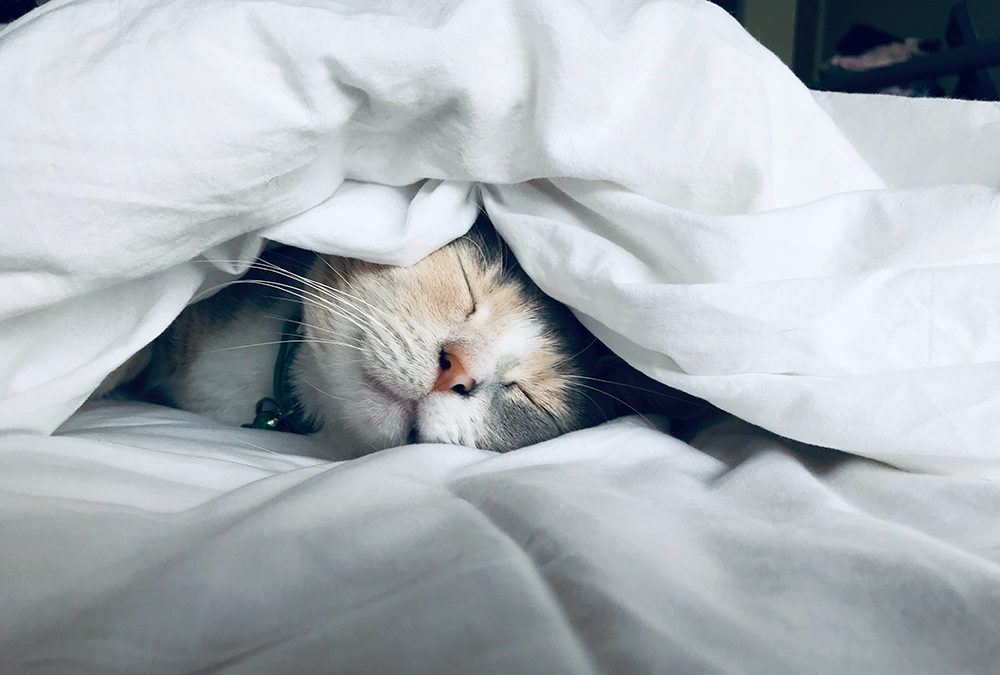Having trouble falling asleep and staying asleep is a prevalent issue; 33 percent of Americans are not getting the recommended amount of sleep per night. While some might be tempted to excuse away their lack of sleep, depriving your body of sleep has abroad range of negative impacts on your body. There are a variety of reasons for this, including a higher-stress modern society, electronics, and an increase in sleep related problems. There are many sleep aids on the market that promise to alleviate this issue, but many methods have unwanted side effects. One huge benefit of essential oils includes the impact they can have on sleep in a natural, balanced way.
Calming Essential Oils for Sleep
Many essential oils for sleep have calming benefits. Essential oils like Lavender and Bergamot are rich in linalool and linalyl acetate; both compounds have well-known relaxing properties. These oils can be diffused aromatically in the bedroom to create a peaceful environment before bed. They can also be taken internally to calm the nervous system, promote relaxation, and lead to a restful sleep.* You can add two to four drops of Lavender or Bergamot essential oil to herbal teas like chamomile or Lemongrass about 30 minutes before going to bed. Alternately, when you’re not in the mood for a warm drink, simply add two to four drops of Lavender into an empty capsule and swallow.
 Aside from Lavender and Bergamot, many oils can be diffused to help create the soothing environment you need to fall asleep.
Aside from Lavender and Bergamot, many oils can be diffused to help create the soothing environment you need to fall asleep.
- doTERRA Balance®
- doTERRA Breathe®
- Cilantro
- Clary Sage
- Melissa
- Sandalwood
- doTERRA Serenity®
- Thyme
- Roman Chamomile
Some essential oils for sleep need to be taken internally for their benefits. Petitgrain, Vetiver, and Roman Chamomile all can be taken internally to help soothe your body and prepare for sleep.*
doTERRA Serenity™ Restful Complex Softgels
 To relieve occasional sleeplessness, take doTERRA Serenity Softgels.* The softgel contains a combination of Lavender essential oil, L-theanine (an amino acid found in green tea), and plant extracts including lemon balm, passionflower, and german chamomile. Multiple studies show the benefits of all the ingredients on improving your sleep.*
To relieve occasional sleeplessness, take doTERRA Serenity Softgels.* The softgel contains a combination of Lavender essential oil, L-theanine (an amino acid found in green tea), and plant extracts including lemon balm, passionflower, and german chamomile. Multiple studies show the benefits of all the ingredients on improving your sleep.*
L-theanine specifically has been shown to improve sleep efficiency which refers to the amount of time you are actually asleep. It also improves sleep latency, or the amount of time it takes you to fall asleep once the lights are off. Both are important to healthy sleep as those who are able to fall asleep faster are usually more likely to have efficient sleep.
More Tips to Help You Sleep
Eat Well. Avoid high-carbohydrate foods which flood the muscles with glucose, causing involuntary muscle movements during sleep, and disruption. When you get the nighttime munchies, it often means that your body is tired, so it may just be time to head for bed. Otherwise, try snacking on nuts. Nuts provide protein and fat, which are not only satisfying, but are slowly digested, which can provide a calm sleep. They are also rich in magnesium, a mineral that helps to calm the nervous system.
Exercise at the right time, or do the right type of exercise. Getting plenty of exercise keeps our weight in check, but it can also help with sleep. The downside is that exercising too close to bedtime ramps up metabolism and body temperature and can make it difficult to fall asleep. If you prefer working out at night, try to keep your workout in the evening at least three or four hours away from bedtime. Or, change up the exercise you do—stretching and yoga are perfect to soothe the mind and unwind.
Get into a routine. Try to maintain a regular sleep schedule, going to bed at the same time and waking up at the same time. Creating this rhythm helps regulate your body’s internal clock and may help you sleep better.
Avoid bright light and electronics. Remove all electronics from the bedroom, including televisions, computers, and other electronic devices. Try to avoid bright light at least an hour before going to bed. Darkness will help your body begin producing melatonin, a hormone that naturally regulates sleep.

Create a haven for sleep. Put to use the various essential oils for sleep. Make sure your bedroom is a quiet, dark, and relaxing environment, which is neither too hot, nor too cold. Your bed and pillows should be supportive, yet comfortable. Your body needs time to shift into sleep mode, so spend the last hour before bed doing a calming activity such as reading or taking a warm bath.
*These statements have not been evaluated by the Food and Drug Administration. This product is not intended to diagnose, treat, cure, or prevent any disease.

